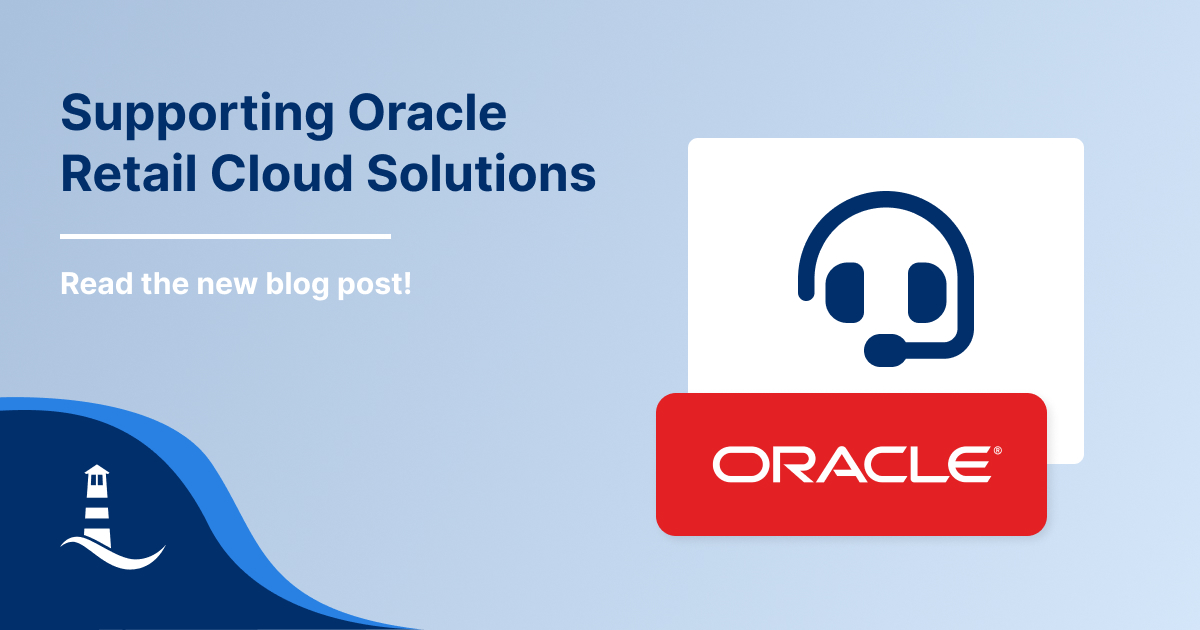Supporting Oracle Retail Cloud Solutions
- Are you implementing or upgrading to Oracle Retail Cloud Solutions?
- Are you uncertain about how your post go-live operational support works?
- Are you worried that you will be left with unmet support needs in production?
Leave the headache and worry of support behind and rest easy with Quickborn’s operational support service!
There are generally two aspects of supporting Oracle Retail solutions that need to be considered when production operations are ongoing in the business:
Operational monitoring of the cloud solution processes:
Oracle will monitor its cloud solutions and services and autonomously fix any technology and infrastructure issues as they arise, such as disk or memory running out, insufficient CPU, DB unavailable, network unavailable, etc. Any business level issue is not fixed by Oracle, the retailer is notified via an automatic notification system of the failure and is asked for feedback on how to proceed. An example of such a failure is when a nightly integration batch fails due to a data error, such as an unrecognized item number being loaded into the system. For such errors, the retailer is expected to provide decision making coverage via its own team, or a support partner like Quickborn. Contact us to learn how our proven and cost-effective operational support services cover operational support needs with global retailer organizations today.
Manage updates published by Oracle for the cloud services deployed:
Oracle typically issues two updates annually to the Oracle Retail cloud solutions. To keep up to date with the latest bug fixes and functional evolutions in the system, these updates should be rolled into the cloud service used in production.
The recommended process for keeping production cloud solutions up to date is to
- Review release notes on the released update and evaluate how urgently fixes and enhancements in the release are needed by the business
- Roll released updates into non production environments and regression test their impact on integrations and extensions in place
- Create necessary updates to integrations and extensions, package the updates to an installer
- Roll released update and associated updates to integrations and extensions into the production environment
If any of the above steps fail, stop and notify the respective vendor of the failing component and request a fix for the issues discovered. Note that multiple levels of test environments can be used for regression tests and integration/extension updates as needed.
Manage extension updates published by retailer or SI partners:
If extensions have been added to the cloud system to cover functional or integration and complex data mapping requirements, such extensions also need to be kept up to date when patches are produced for them. Such patches may be needed due to an Oracle Cloud Service update being added, if the Oracle Cloud Service update has impact on existing extensions, or when the extension itself is updated to add functionality or to correct bugs.
The process to add updates for extensions is similar to adding updates published by Oracle:
- Review release notes on the released update and evaluate how urgently fixes and enhancements in the release are needed by the business
- Roll released updates into non-production environments and regression test their impact on the cloud solution, integrations and other extensions in place
- Create necessary updates to integrations and existing extensions, package the updates to an installer
- Roll released update and associated updates to integrations and extensions into the production environment
Oracle Retail Cloud Solutions have a state-of-the-art process orchestration framework (POM) that allows seamless integration and reporting of processes running in the cloud service. Leveraging this tool is an essential part of monitoring the health and performance of your Oracle Retail Cloud Services.
Contact our support services team to review your need and get a comprehensive quote within 1 business day from Quickborn for support of your cloud service operations and updates going forward.







